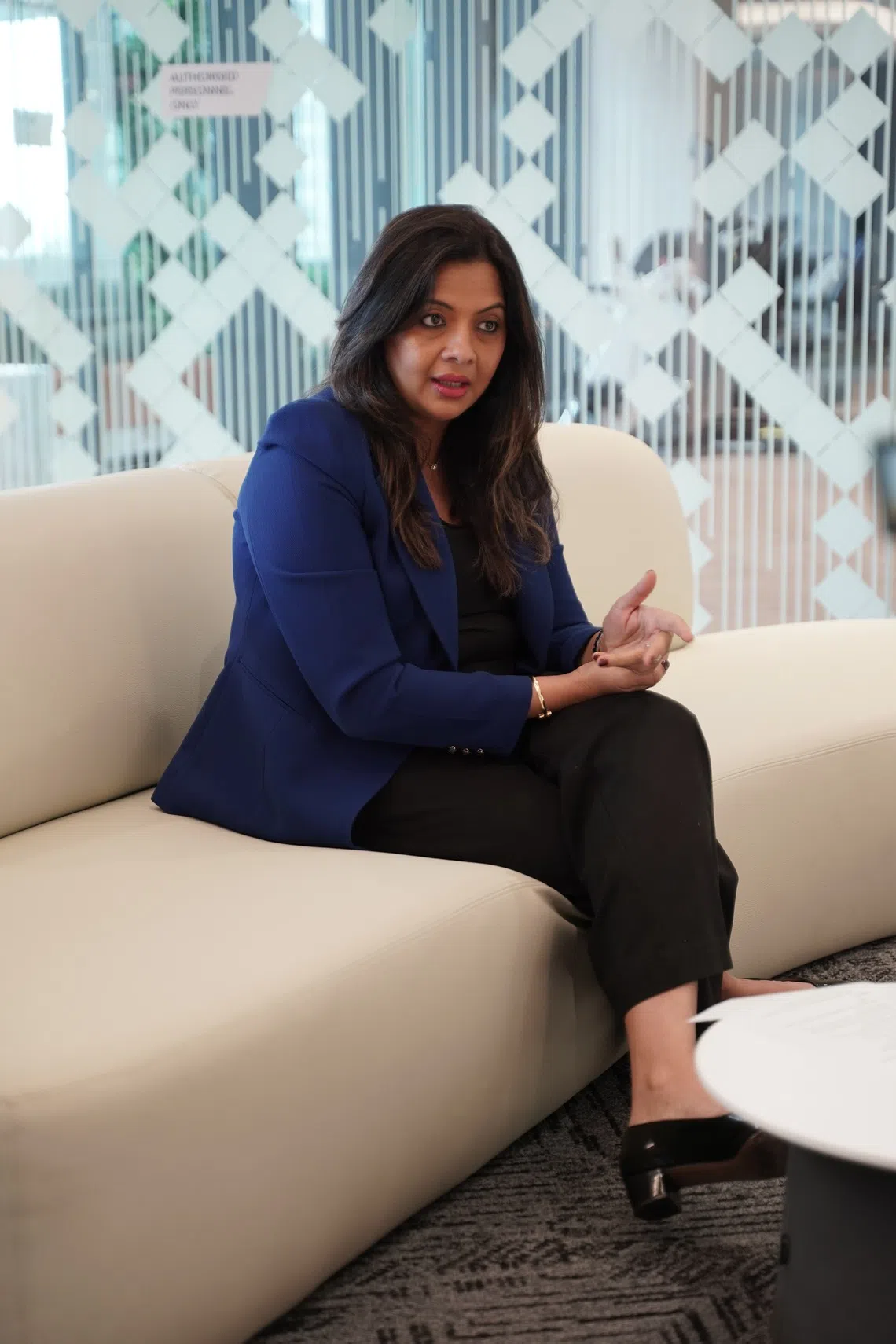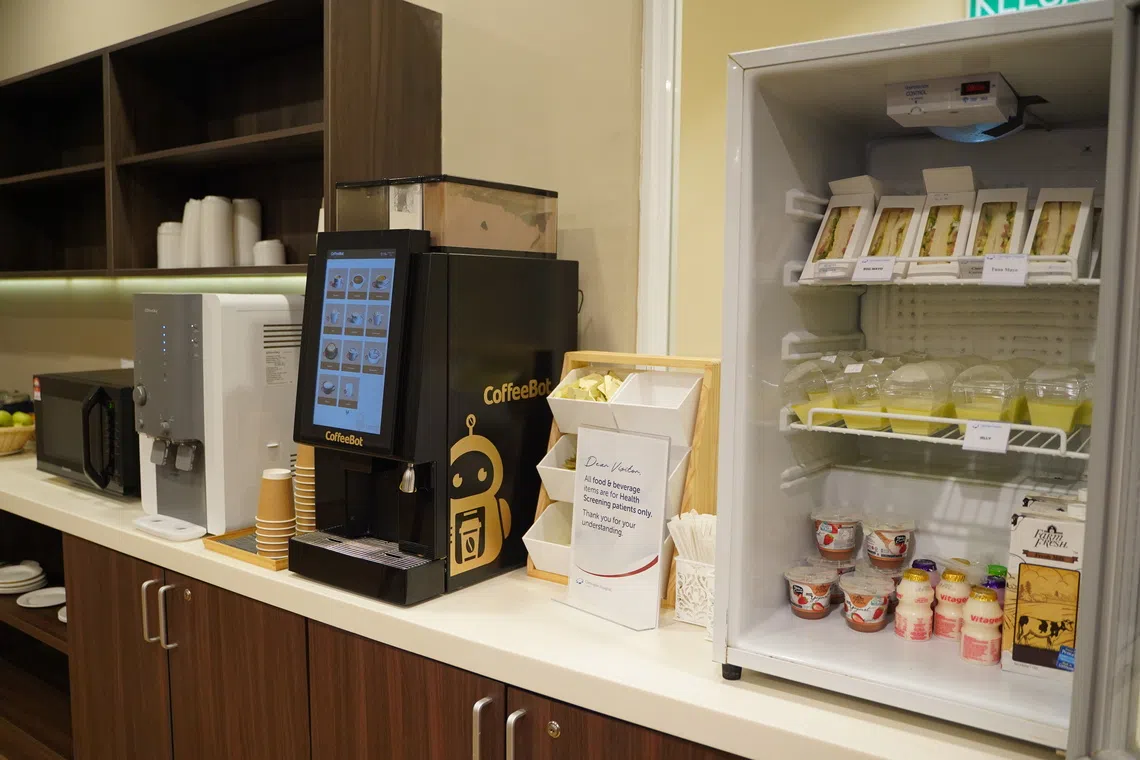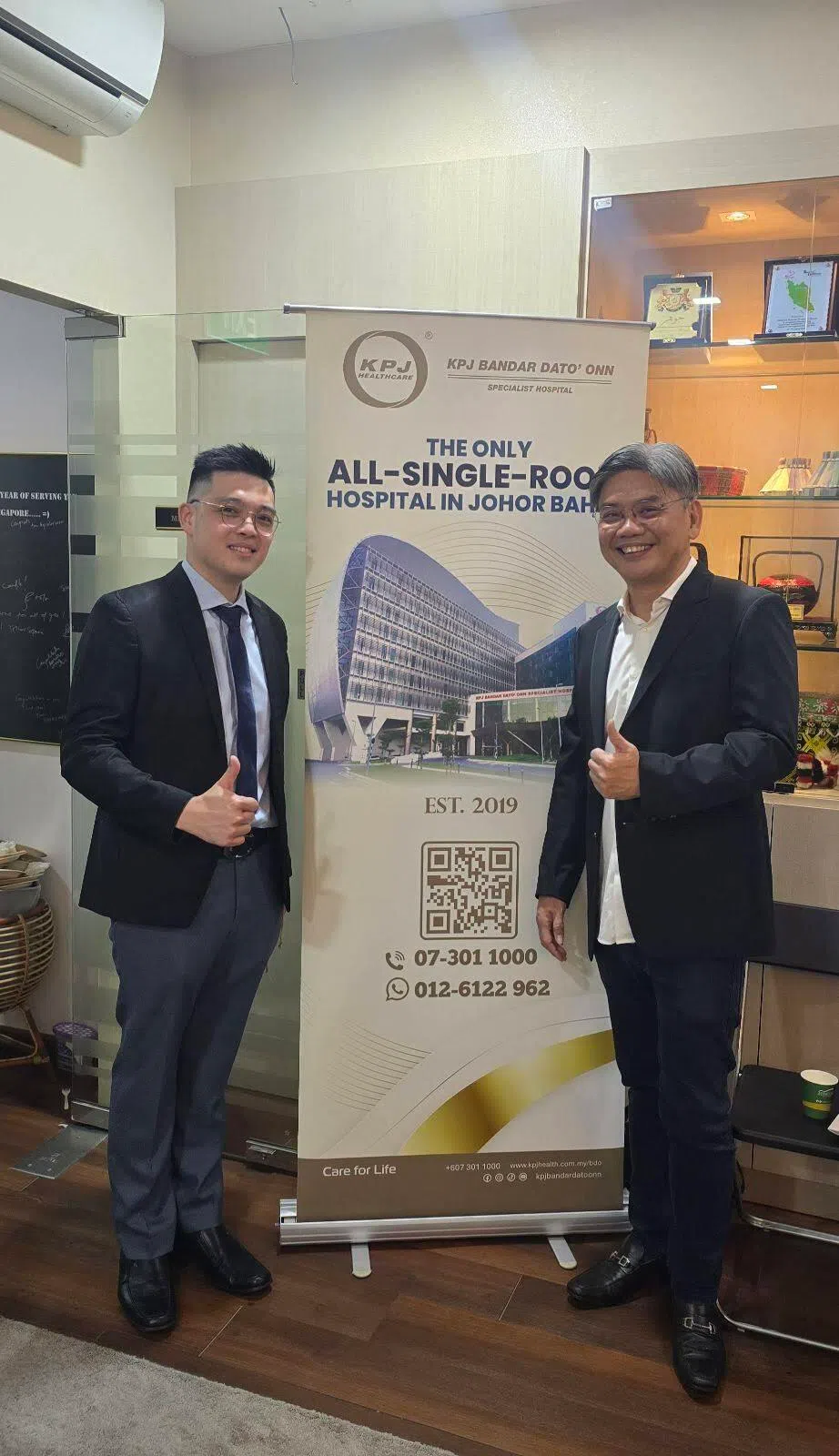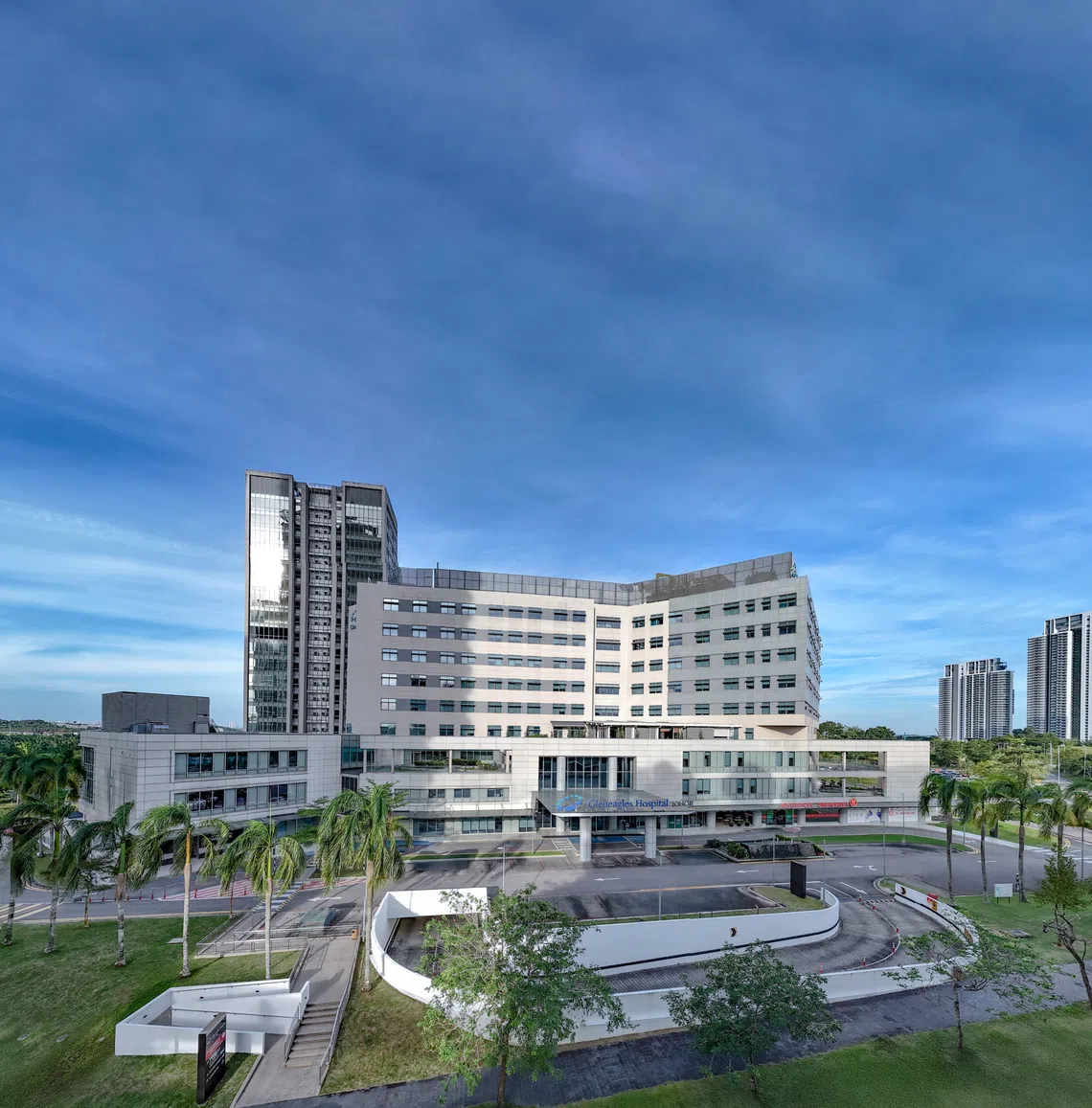‘I was quite impressed’: Why more Singaporeans are heading to Johor for health screening
Hospitals across the Causeway are gearing up with an eye on more Singapore patients when the cross-border rail link opens
[SINGAPORE] Last year, when Candy Lim wanted to do a mammogram, she made an appointment at Gleneagles Hospital and headed over. The catch? It wasn’t the medical facility here but Gleneagles Hospital Johor in Iskandar Puteri, Malaysia.
“It was a 15-minute drive after clearing the Tuas Checkpoint, and everything at the hospital was completed within two hours,” says Lim, who paid a promotional rate of RM161 (S$50) for a mammogram and breast ultrasound and went on a weekday. This compares with the few hundred dollars she would have been charged here.
“The nurses were fantastic; very nice and friendly. Maybe because they don’t have to deal with a lot of patients, they’re more relaxed.”
Happy with her experience, the real estate agent got her mother to do the same screening tests and even took her uncle there for his first health screening as well.
For Wan Hoe Yin, whose company provides a budget of S$500 every two years for health screening, it made sense to stretch his dollar in Johor.
“With the same amount of money, it covers two X-rays, two ultrasounds, one CT (computed tomography) scan of the heart as well as tumour markers and all the other standard tests,” says the manager, whose colleague went with him to do the same screening that took just three hours to complete.
Navigate Asia in
a new global order
Get the insights delivered to your inbox.
Increasingly, Singaporeans – driven by the strong Singapore dollar as well as the high cost of medical services here – are heading across the border to undergo health checks. Many, like Lim and Wan, are pleased with the smooth, comfortable and professional service they received in a private hospital.
Others, like Tay Boon Liang, turned the cross-border healthcare visit into a mini break with family. “I find general health screening an off-the-shelf product with little differentiation across most providers,” says the manager in financial services who paid half of what it would have cost for an executive screening package here. “So the cost savings are a driving factor for me.”
A growing number
The influx of Singaporean patients is benefiting Johor healthcare providers, with Gleneagles Hospital Johor for instance, gaining in particular due to brand familiarity. The hospital is part of IHH Healthcare – the largest private healthcare provider in Singapore, which also operates the Mount Elizabeth hospitals.

Sipika Singh, Gleneagles Hospital Johor’s deputy chief executive officer, says the number of Singaporean health-screening patients grew by around 35 per cent compared with the same period last year. She noted that this surge was remarkable, as growth in the past three to four years had been relatively steady.
“This could have been driven by the positive buzz around the Johor-Singapore Special Economic Zone (bilateral initiative to boost cross-border trade, investment and business activity),” she says, adding that Singaporeans make up 16 to 18 per cent of all its health-screening patients. “We’re able to manage waiting times and deliver screening reports within hours, which helps the patient experience.”
The hospital now offers a basic health-screening package for RM688 (before a 6 per cent sales and service tax or SST) which includes tumour marker tests, a chest X-ray and electrocardiogram.
Patients can add on tests such as a mammogram (RM250), cardiac screening (RM688) or its most popular option, the abdomen and pelvis ultrasound (RM388). If preferred, they can also arrange for a virtual review of their screening results.

Says Sipika: “Our effort is focused on making care deeply personal and seamlessly connected, so patients never feel the distance between countries.”

George Foo, founder of healthcare and wellness publishing agency, Health365, has seen health-screening inquiries grow from 20 to 30 to about 100 a month since it started its medical concierge service about a year ago. Health365 works with about six hospitals and medical centres in Johor to offer health checks.
“Patients want to do more scans and things that aren’t included in basic packages which will cost a lot more in Singapore,” says Foo. “It’s always less convenient to go overseas for health screening, but it’s a question of cost versus convenience.”
Popular screening services include colonoscopies, which are typically excluded from standard health-screening tests and are costly. A colonoscopy in Singapore varies widely depending on the hospital and specialist fees, and can range from around S$2,000 to S$5,000.
At Gleneagles Hospital Johor, the estimated cost ranges from about RM5,000 to RM6,000, excluding SST.
Healthcare home and away
Another reason some Singaporeans head to Johor for health screening is privacy – to shield any possible health concerns from their employers or insurers.
However, those who discover issues from their screening, then return to buy health insurance before seeing a doctor here should know that their claims risk being declined, and their insurance policy could even be voided, if the insurer discovers there was no full disclosure prior to the purchase.
“For peace of mind, the advice is to just buy sufficient insurance before you go for any health screening,” says Eddy Cheong, CEO of insurance advisory Havend. “Because at that point in time, you buy in good faith and are truly not aware of any new health concerns.”
Indeed, beyond the tests themselves, patients should consider the continuity of care – whether follow-up consultations, treatment or specialist referrals can be conveniently arranged if needed.
“In Singapore, all facilities offering screening services are licensed under the Private Hospitals and Medical Clinics Act and regulated by the Ministry of Health,” says Dr Eric Chiam, CEO of the Minmed Group, which operates four health-screening centres and more than 30 clinics here.
“This ensures a high and consistent standard of clinical quality and data security. A key advantage is the ready availability of follow-up by general practitioners, who can interpret findings and refer promptly to specialists when required.”
Minmed’s focus is on making screening “accessible, digital and meaningful”. Screening is made more convenient without a need for fasting, and there are packages for different health profiles and budgets, he says.
In any event, if there are serious red flags from screening results across the border and treatment is needed, most patients are likely to prefer seeking medical attention in Singapore. This is especially since national health insurance scheme MediShield Life provides at least basic, lifelong hospitalisation coverage, notes Havend’s Cheong.
Of course, there is plenty of potential in the health-screening business in Johor, particularly with the cross-border Johor Bahru-Singapore Rapid Transit System (RTS) Link starting service by December 2026.
“Every hospital that I visit in Malaysia is expanding, and they’re ramping up in Johor because the RTS is coming,” says Health365’s Foo, noting that Singapore’s Thomson Medical Group is building a huge facility there, while Malaysia’s Sunway Group is planning its new, 300-bed Sunway Medical Centre in Iskandar Puteri.

Indeed, Gleneagles Hospital Johor’s Sipika says it is actively working on “integrated care models” with Singapore healthcare providers, especially since there are other IHH hospitals here.
“We’re exploring how we can work with both the public and private Singapore healthcare systems so we can complement each other,” she says. “But on the whole, Gleneagles is on an expansion path.”
In anticipation of a rise in patient numbers, especially those on day-trips, the hospital is investing in more capacity and technology, such as a second MRI (magnetic resonance imaging) machine.
For some Singaporeans, however, the cost savings and good service in Johor are only attractive to a certain extent.
“I was quite impressed,” says Eric Toh, a retired business owner. His RM1,888 comprehensive health check included a heart scan and even dental screening and face-to-face review on the same day.
“Everything was so smooth, the atmosphere was very good and the environment quiet.”
Still, he will do his future health screenings in Singapore. “Because in any case, if there are any sicknesses, insurance can help take care of it here.”
Decoding Asia newsletter: your guide to navigating Asia in a new global order. Sign up here to get Decoding Asia newsletter. Delivered to your inbox. Free.
Copyright SPH Media. All rights reserved.



